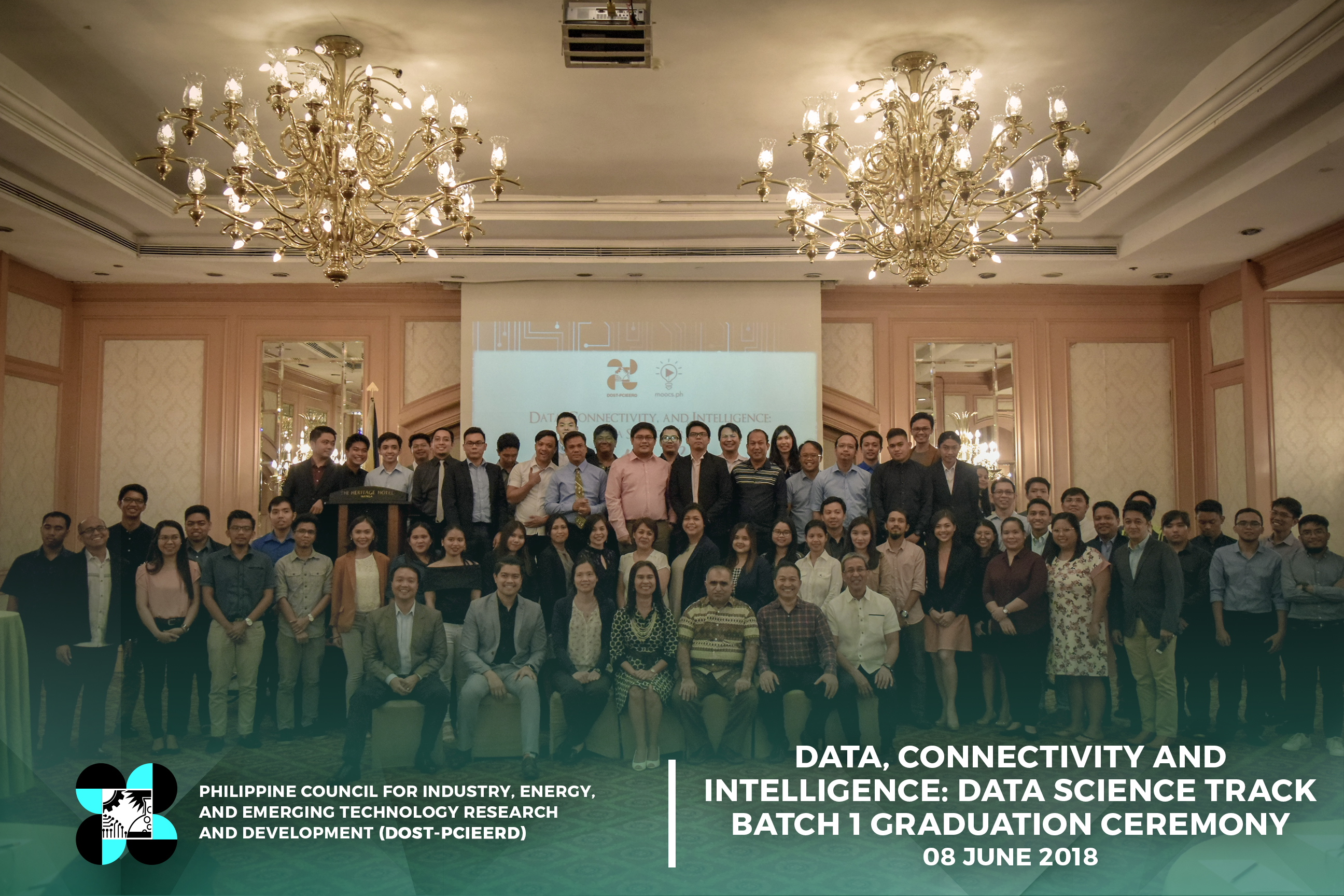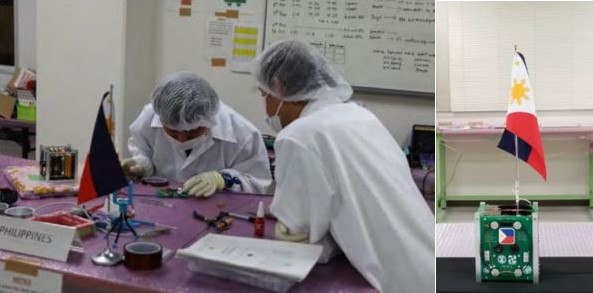Last June 8, the first batch of trainees of the Data, Connectivity and Intelligence: Data Science Track, offered by the Philippine Council for Industry, Energy and Emerging Technology Research and Development (DOST-PCIEERD), completed the program with a graduation ceremony held at the Heritage Hotel Manila, Pasay City.
The Data Science Track is the third of a series of training programs in Data, Connectivity, and Intelligence and the first online learning module, managed by DOST-PCIEERD in partnership with the local startup MOOCS PH – which works in collaboration with tech company Coursera. This is DOST’s first scholarship program that is delivered purely online, and the first one in the country that was done in collaboration with Coursera.
With the goal of addressing the growing demand for data scientists – thanks to the country’s rapid adaptation of using data in studying trends, global movements, human behavior, and the like – the Department of Science and Technology (DOST), through PCIEERD, initiated an online data science training course for individuals from different sectors: academe, government, and private industries, including undergraduate and graduate students.
The Batch 1 course consists of four modules, namely: The Data Scientist’s Toolbox, R Programming, Getting and Cleaning Data, and Exploratory Data Analysis.
From over 1,000 applications received for Batch 1, the program was able to accommodate 353 applicants with 141 of them having completed the four modules and recognized during the graduation ceremony. These graduates were automatically accepted for the other advanced courses of the entire data science track training program, allowing the trainees to utilize their knowledge to the next level. The advanced courses will tackle the Modules 6-8 of the Data Science specialization by Johns Hopkins University.
With training programs like the Data Science Track, DOST aims to provide a more comprehensive approach in upskilling our local workforce, giving all individuals an equal opportunity to learn while giving them quality education from top-tier academic institutions. In the long run, DOST-PCIEERD aims to continue spurring more knowledge transfer initiatives to deserving and talented individuals, for groundbreaking technologies.
As an agent for catalyzing groundbreaking technologies for practical and relevant application in the country, the DOST-PCIEERD also hopes to link the trained individuals to relevant institutions for possible employment, in order for them to utilize the knowledge gained in the training. For institutions/employers interested to get information on the training graduates, the Human Resources and Institution Development Division (HRIDD) of the DOST-PCIEERD may be contacted at telephone numbers: 837-20-71 to 82 local 2101 or email address: This email address is being protected from spambots. You need JavaScript enabled to view it..
The second batch of participants for the Data Science Training Course is currently undergoing training as well, after DOST-PCIEERD opened the slots for interested applicants in January 2018 for the course’s extension track. For more information and new updates on DOST-PCIEERD’s online learning modules, interested applicants may visit the Innovation Council’s official Facebook page at https://www.facebook.com/dostpcieerd or the official website at http://pcieerd.dost.gov.ph.







